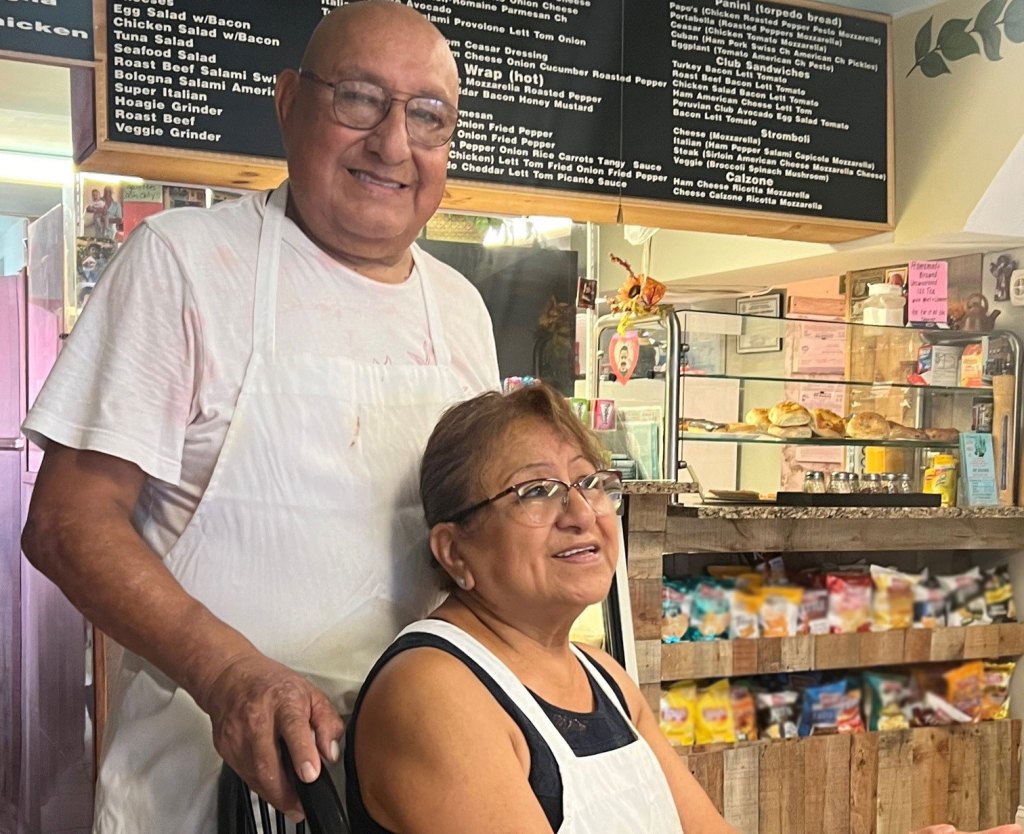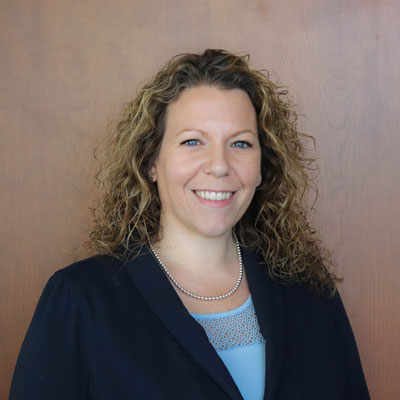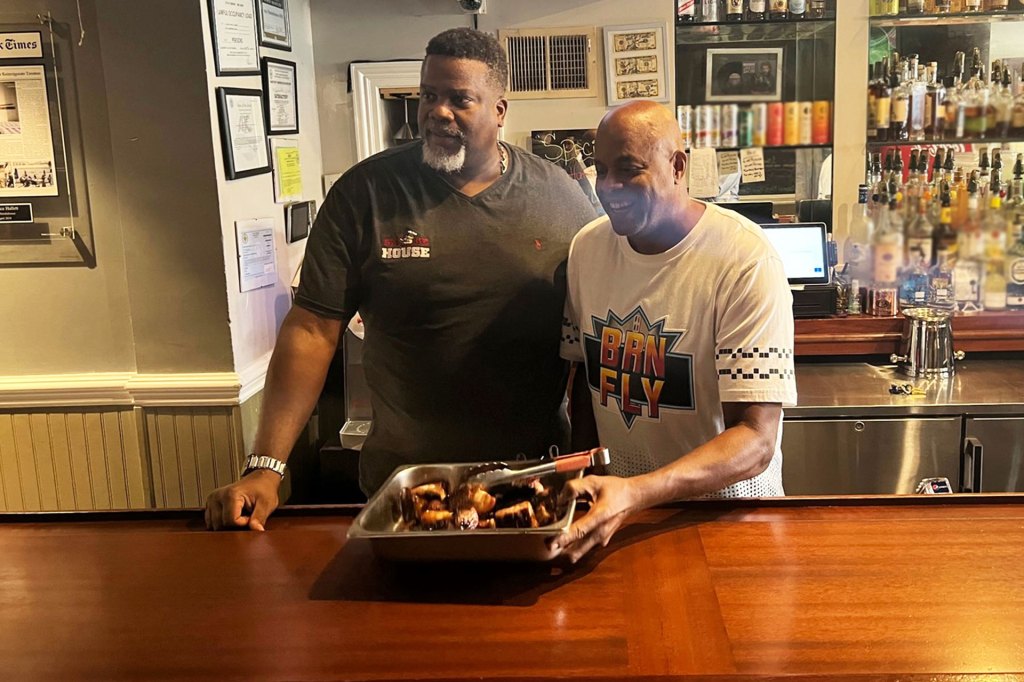Using data and community conversation to support small businesses across New Jersey
The New Jersey Economic Development Authority and the Philadelphia Fed teamed up to explore post-pandemic recovery and credit access for the state’s small businesses using data from the Fed’s Small Business Credit Survey.
By
, Fed Communities

When the pandemic hit in 2020, the New Jersey Economic Development Authority sprang into action to help the state’s businesses weather the storm. But responding to the crisis also spurred new opportunities for the organization. The last three years have broadened their work.

“We’re the driving force behind the state’s economic initiatives, and we cover things from wind farms to food deserts to businesses to day cares.”
– Christina Fuentes, VP of Community and Business Development, New Jersey Economic Development Authority
“We were always known as the ‘state bank,’ but now we’re doing more diverse things, from loans to grants to tax credits. It’s more of a portfolio,” she added. “Covid brought this whole new lens and all these appropriations that have transformed all of our initiatives.”
Partnering to explore what small businesses need now
Now, small businesses are emerging from the pandemic eager to look to the future. NJEDA wanted to know what these companies needed to grow and thrive in this evolving economic climate. A partnership with the Federal Reserve Bank of Philadelphia helped them to investigate this question, drawing on findings from the Fed’s Small Business Credit Survey (SBCS).
The project began in 2020 when Ashley Putnam, Director of the Philadelphia Fed’s Economic Growth and Mobility Project, reached out to NJEDA seeking a partner for her team’s next Research in Action (RIA) Lab effort. RIA Lab partnerships bring the Fed together with local communities to address a specific economic challenge. Over 18 to 24 months, these collaborations explore the issue through a combination of research and convenings. During this time, RIA-Labs shift from examining a community problem to developing a sustainable and equitable range of solutions.
The goal of this lab with NJEDA: to better understand the needs of small businesses owned by people of color as they recovered from the pandemic.

“NJEDA was a great partner when they came to the table because they were already thinking about …what they could do with their resources. The RIA Lab research would give them a way to explore, ‘Are we meeting the needs of our customers?’”
– Ashley Putnam, Director of the Economic Growth and Mobility Project, Philadelphia Fed
Putnam knew that the Fed’s Small Business Credit Survey could provide the needed data for their lab—if they could get enough responses from a diverse group of New Jersey’s small business owners.
The mutual benefits of a Small Business Credit Survey-based partnership
The SBCS regularly surveys thousands of small businesses with fewer than 500 employees across the country. Survey results help the Fed and many other organizations working with small businesses better understand small firms’ experiences as they seek to access credit, grow their business, and manage debt.
State, regional, and local organizations that serve as SBCS partners also benefit. As SBCS partners, these organizations help distribute the Fed survey to small businesses they support and serve. In return, partners receive interactive data reports about the experiences of small businesses in their region.
NJEDA’s work building connections over the years with New Jersey’s small business community paid off. Encouraging enough small businesses across New Jersey to respond to the SBCS in 2020, NJEDA then had the data they needed for a survey-based RIA Lab with the Philadelphia Fed.
The benefits of the SBCS data extend beyond the research lab. “The SBCS is a really good platform to figure out how to tweak our products,” said Fuentes.
For example, SBCS responses reinforced for NJEDA the importance of extending working capital funding to New Jersey’s small businesses. Working capital can cover such costs as building improvements, equipment, and furniture. When NJEDA launched a new loan product in October 2022 that provides a qualified small business with a loan of up to $50,000 for future working capital expenses, the product proved so popular that the initial $20 million in loan funds were snapped up within 24 hours. Additional funding then allowed NJEDA to expand the program.
“We took in almost 1,998 applications for $94 million in the end,” Fuentes said. “We were able to fund everybody who applied and met the criteria.” Fuentes said the SBCS has been a valuable tool, reassuring NJEDA that offering loan products like this working capital fund can provide small businesses with what they truly need.
Never miss a story.
Learning more about small businesses’ credit access barriers
During the pandemic, the survey gave small businesses a place to speak up about how Covid affected their operations. “It’s important for business owners to feel that they are being heard,” Fuentes said. “People are looking at their responses. I think it helps strengthen the relationships that we have.”
NJEDA and the Philadelphia Fed were particularly curious to understand the reasons why some small businesses did not take advantage of pandemic-related assistance like the Paycheck Protection Program (PPP) and other types of capital.
To investigate this question, they reviewed the SBCS response data for New Jersey and held roundtables in the region. They brought together groups serving New Jersey’s small businesses, such as the Hispanic Chamber of Commerce, the Asian Indian Chamber of Commerce, the African American Chamber of Commerce, and the Small Business Development Center.
NJEDA and the Philadelphia Fed learned that three things made it harder for small business owners of color to access capital through programs like PPP. Some small business owners were wary of the products, assuming they might be too risky. Others had difficulty figuring out which resources they might be qualified for. For those who did find a product that could work for them, many found the administrative burden of applying for the loan too great.
Data and conversation lead to useful lessons and tools
Barriers like these could easily prevent the same small business owners from accessing other loan products in the future. Such hurdles also could be an issue in places outside New Jersey, they suspected.
NJEDA and the Philadelphia Fed brought together stakeholders from across the state again in 2022 to explore solutions to these credit access barriers. They learned from conversations with small business owners and their partners, for instance, that it would be helpful for lenders to intentionally work on building trust with small business owners of color.
The RIA Lab partners held roundtables with community bankers as well. They shared data suggesting that small business owners of color prefer to bank with community lenders or credit unions, but when they can’t access those lenders, they turn to online lenders instead.
They shared another key SBCS finding with both groups: data showing that a lower proportion of small businesses owned by people of color had their PPP loans forgiven.

“PPP was advertised as this amazing relief program for any small business owner, yet Black- and Brown-owned firms aren’t getting forgiven of this loan,” Putnam explained. “Then they really have a debt.”
The survey surfaced important points like these, which then led to more fruitful conversations among the community in the roundtable sessions.
“With the SBCS data, we are validating things stakeholders know anecdotally,” said Putnam. “And some of these numbers can be really powerful.”
Leveraging partners’ combined strengths to better serve small businesses
Putnam and Fuentes said the partnership between NJEDA and the Philadelphia Fed has been valuable to both organizations. Fed staff do not always have the on-the-ground contacts needed to reach small business owners individually. “But we knew that NJEDA had relationships with CDFIs, small business development centers, and a whole plethora of organizations serving small businesses directly,” Putnam said.
“Through their outreach, they’ve been able to get a lot of survey responses,” she explained. “That then allowed us to do some deep-dive research into the state of small businesses in New Jersey.”
Together, NJEDA and the Philadelphia Fed created the New Jersey Small Business Ecosystem Toolkit, which highlights financial challenges New Jersey small businesses face and offers possible solutions to those problems.
Fuentes said NJEDA has also appreciated the partnership. “We’ve had a good relationship with Ashley and the Philadelphia Fed because we’re on the same mission,” she said.
“Small businesses still need help and resources. That’s what we’re trying to do out there, and these relationships help.”






